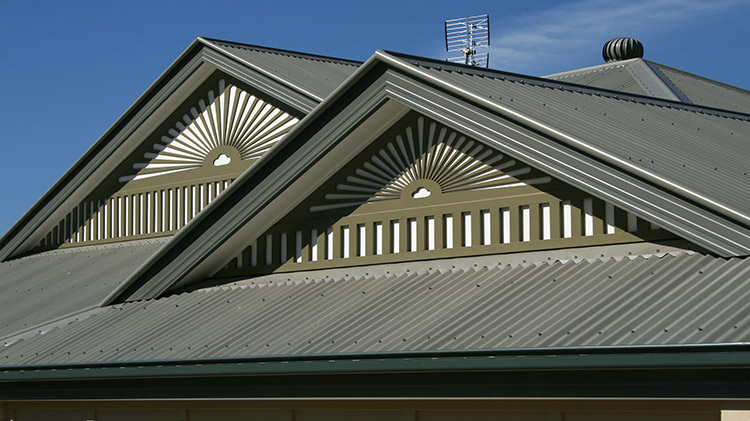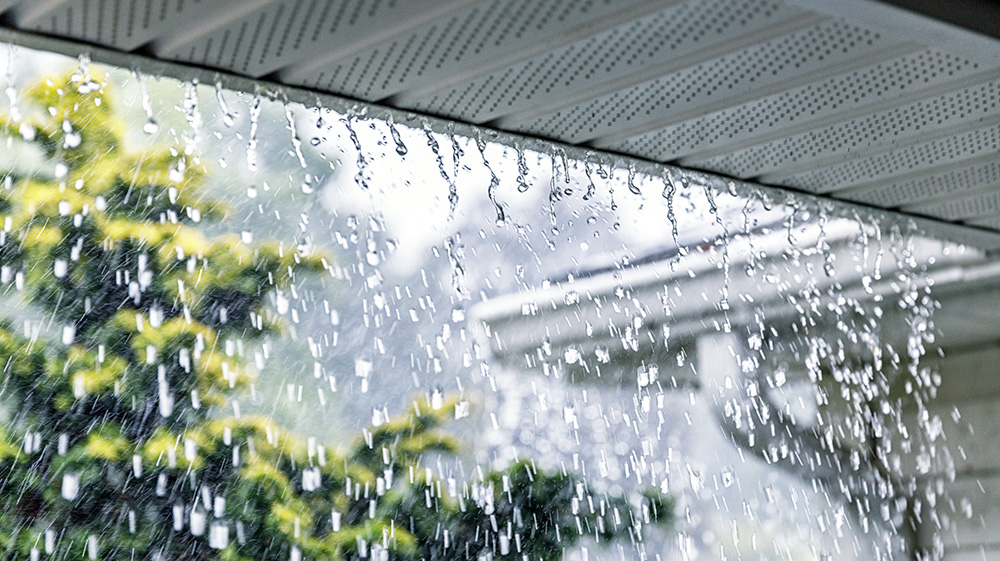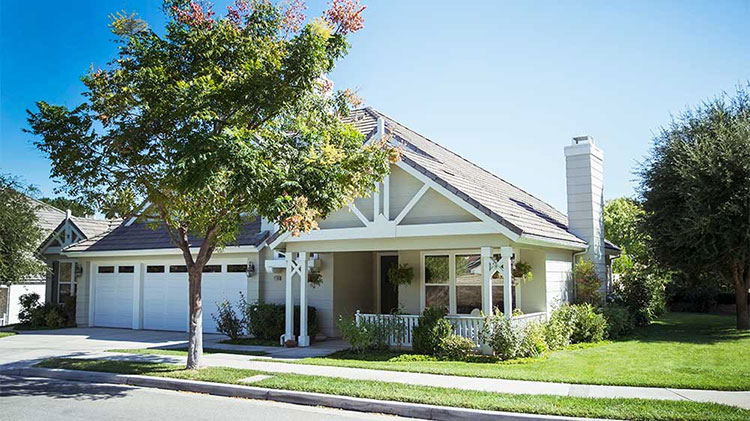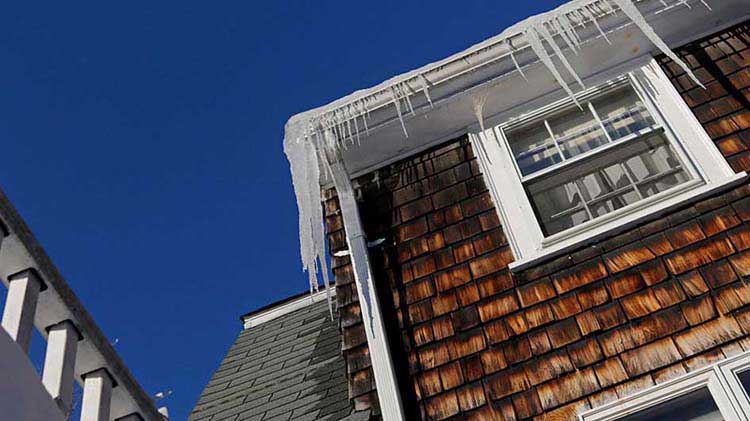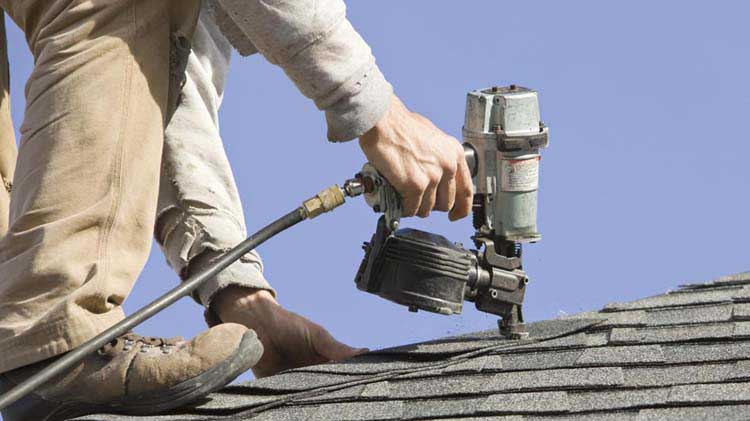Pros and cons of metal roofs for your home
The benefits of a metal roof may outweigh traditional asphalt shingles, especially when you consider a metal roof lifespan.
Deciding on the type of roofing material for your home is more than just about aesthetics; it's about the longevity, durability and overall protection your home will have. This is where the age-old debate of metal roofs vs. shingles comes into play. Both have their merits and downsides, making the choice dependent on various factors, including climate, budget and personal taste. This article delves into the pros and cons of metal roofs, explores how they compare to shingles and touches upon the diversity in types and colors of metal roofing, to help you make an informed decision.
Metal roof pros
Metal roofing boasts a range of benefits that contribute to its growing popularity among homeowners. Here are some of the key advantages:
How long do metal roofs last? One of the most significant selling points of metal roofs is their longevity. Depending on the material, metal roofs can last between 40 to 80 years, significantly longer than the 20-year lifespan of typical asphalt shingle roofs.
Are metal roofs durable? Metal is very resilient against weather elements, including strong winds, heavy snow and even wildfires, making them a robust choice for almost any climate.
Are metal roofs energy efficient? A metal roof can save a homeowner around 40% on energy costs. The most efficient type of metal roof will depend on your home’s location: Cooler locations may see the biggest savings from unpainted metal roofs since they will absorb more of the sun’s heat. Conversely, warmer locations may find the granular or pre-painted options a better choice since they re-emit up to 90% of the solar radiation.
What is the environmental impact? Metal roofing materials are often made from recycled content and are 100% recyclable at the end of their life, making them an environmentally friendly option. This aspect is increasingly important for homeowners looking to reduce their carbon footprint.
Are metal roofs an impact resistant roof? Metal roofs offer superior resistance to impact, including hail, compared to other roofing materials. This can be particularly beneficial in areas prone to severe weather conditions.
How fire resistant are metal roofs? Metal roofs are noncombustible, which means they have a Class A fire rating (the most resistant). This characteristic is especially important in areas prone to wildfires or if you’re looking for an added layer of protection for your home. In fact, metal roofs are no more prone to lightning strikes than traditional asphalt roofs.
Get a homeowners insurance quote
Want to protect your home?
Metal roof cons
Despite the numerous advantages, there are a few considerations to keep in mind:
How much does a metal roof cost? The most significant barrier for many homeowners is the higher initial cost of metal roofs, averaging $11,000 for a 2,300 square-foot roof. Prices vary, but metal roofing can be more expensive than traditional shingle roofing upfront, though potential savings in maintenance and energy bills can offset this over time.
Are metal roofs noisy? Without proper insulation, metal roofs can be noisier during rain or hailstorms compared to their asphalt shingle counterparts. However, modern installation techniques as well as the type of metal roof selected (uncoated vs coated) can significantly mitigate this issue.
Do metal roofs expand and contract? Metal roofing materials can expand and contract with temperature changes, which can lead to loosening of the fasteners over time. Proper installation and maintenance are crucial to counter this issue.
Do metal roofs dent? Although metal roofs are generally durable and impact-resistant, some softer metal materials, like aluminum and copper, can be prone to denting from large hailstones or falling branches. It's crucial to select the right type of metal roof for your climate and consider the potential risks in your area.
Metal roof aesthetics
Types of metal roofs
When it comes to types of metal roofs, there are a few materials to choose from, each offering a set of benefits:
Aluminum: Highly resistant to corrosion in coastal environments and lightweight.
Steel: Offers high strength and is typically coated to prevent rust. This is the most popular metal roof.
Copper: Known for its long lifespan and the beautiful patina it develops over time. This is typically the most expensive type of metal roof material.
Zinc: Also boasts a long lifespan and requires minimal maintenance. It will also patina and change color.
Metal roof colors
As for colors, metal roofs are not limited to the classic silver or gray. Thanks to modern technology, they are available in a spectrum ranging from traditional earth tones to vibrant blues, greens and even patterns that mimic wood or slate. The most common colors are:
- Black
- Blue
- Brown
- Green
- Grey
- Red
- White
This diversity allows homeowners to select a roof that not only meets their performance needs but also complements their home’s aesthetic.
What’s the difference between metal roofs and shingles?
Shingles can come in sheets, rolls or stacks and are all similar in design. Shingles are nailed onto wood roofing structures, layered and placed up facing from the lowest point on the angled roof. Shingles can be the cheaper option and simplest to install.
Metal roofs come in large sheets and typically are more expensive to produce and install. Because of the design with seams that interlock and fasteners to hold the surface, metal roofs have strength and durability with minimal maintenance.
Should I buy a metal roof or shingle?
In comparing metal roofs and shingles, it's clear each has its advantages and disadvantages. Metal roofs offer exceptional durability, energy efficiency and aesthetic diversity, making them an attractive option for many homeowners. However, their higher initial costs and potential noise issues are factors to consider. Ultimately, choosing between a metal roof and shingles will depend on your budget, climate and personal preferences for your home’s appearance and performance.
Before making a decision, it’s recommended to consult with a professional roofing contractor to discuss the best options for your home. They can provide valuable insights into the types of metal roofs suitable for your area and help calculate the long-term savings to help make an informed choice. In addition, insurance companies may provide roof material discounts based on the type of roofing material used.
Remember, investing in your home’s roof is a crucial decision that impacts your property’s value, safety and cost-efficiency. Whether you lean towards metal roofing or traditional shingles, ensure you weigh the pros and cons carefully to decide what best suits your needs and circumstances.
